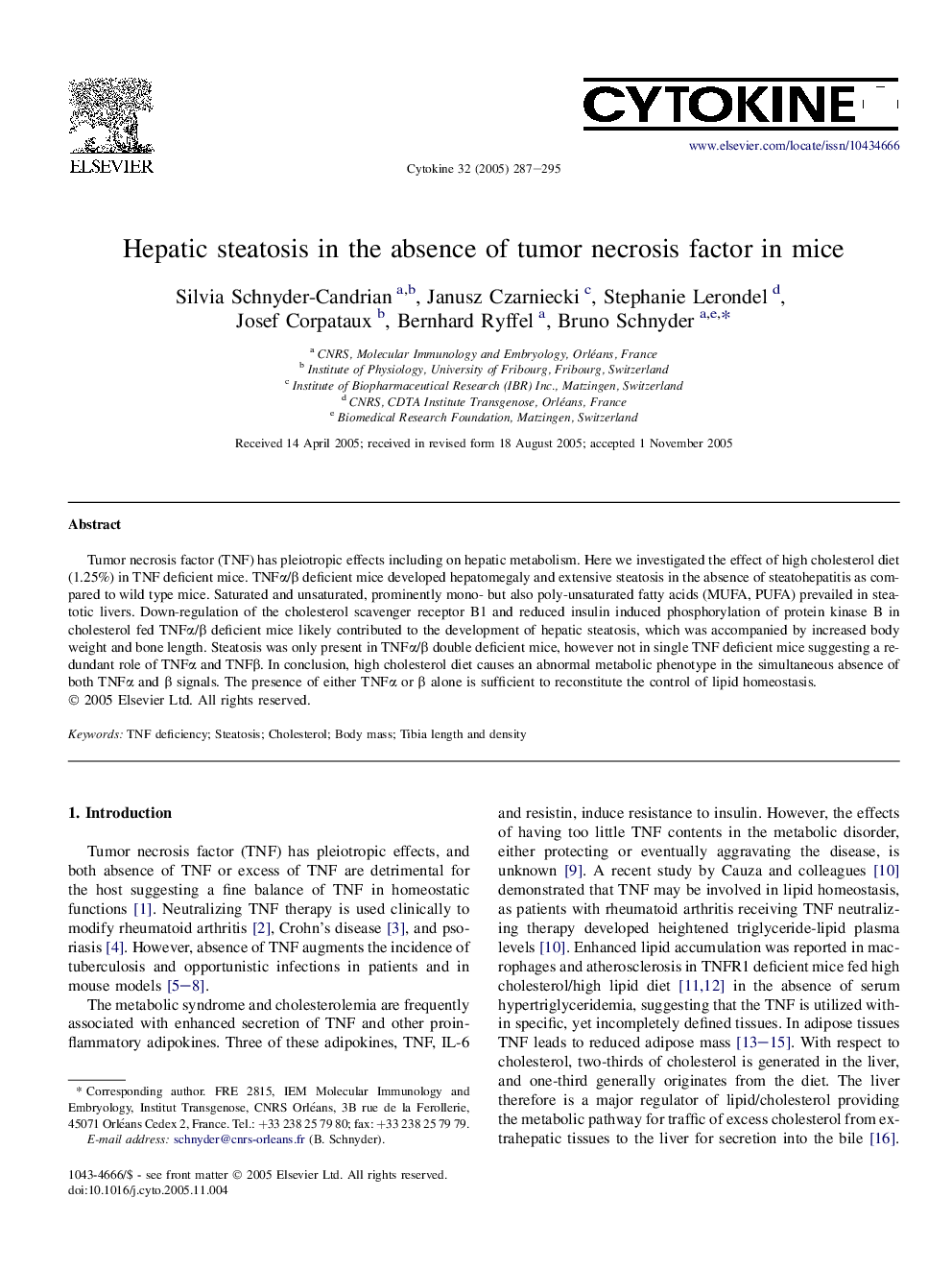| Article ID | Journal | Published Year | Pages | File Type |
|---|---|---|---|---|
| 9110781 | Cytokine | 2005 | 9 Pages |
Abstract
Tumor necrosis factor (TNF) has pleiotropic effects including on hepatic metabolism. Here we investigated the effect of high cholesterol diet (1.25%) in TNF deficient mice. TNFα/β deficient mice developed hepatomegaly and extensive steatosis in the absence of steatohepatitis as compared to wild type mice. Saturated and unsaturated, prominently mono- but also poly-unsaturated fatty acids (MUFA, PUFA) prevailed in steatotic livers. Down-regulation of the cholesterol scavenger receptor B1 and reduced insulin induced phosphorylation of protein kinase B in cholesterol fed TNFα/β deficient mice likely contributed to the development of hepatic steatosis, which was accompanied by increased body weight and bone length. Steatosis was only present in TNFα/β double deficient mice, however not in single TNF deficient mice suggesting a redundant role of TNFα and TNFβ. In conclusion, high cholesterol diet causes an abnormal metabolic phenotype in the simultaneous absence of both TNFα and β signals. The presence of either TNFα or β alone is sufficient to reconstitute the control of lipid homeostasis.
Keywords
Related Topics
Life Sciences
Biochemistry, Genetics and Molecular Biology
Endocrinology
Authors
Silvia Schnyder-Candrian, Janusz Czarniecki, Stephanie Lerondel, Josef Corpataux, Bernhard Ryffel, Bruno Schnyder,
